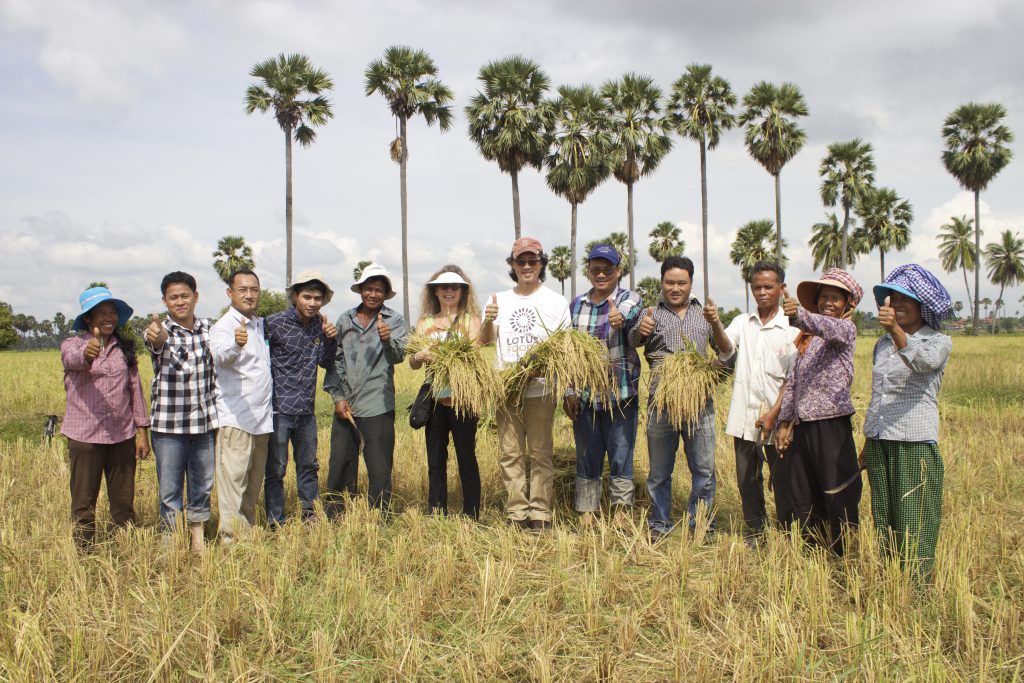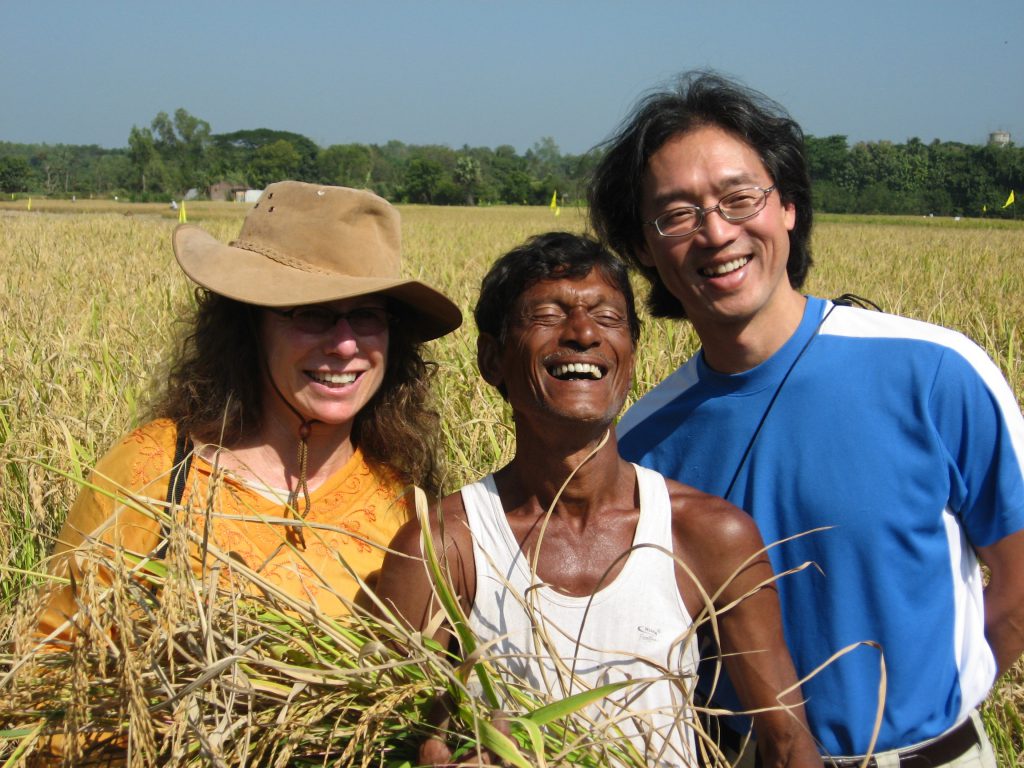Lotus Foods has always been a B Corporation at heart since its establishment in 1995, long before B Corp was founded in 2006 “to use business as a force for good in the world.” Our mission was focused as much on people and planet as on profit: preserve rice biodiversity, promote organic production, enable farmers to make a living from their hard work, and provide consumers with healthier rice choices. In fact, as we were operating out of our living room during the first 1o years, more profit would have been welcome, but passion for our vision meant that we invested most of our revenue into paying farmers higher premiums and expanding the number of producers who could benefit. And later we advanced funds to our business partners for inventory financing, organic certification, organic fertilizer, and equipment. That was perhaps the reason why we were invited to become a B Corporation in 2012.
By then we knew about the great work of B Lab, the non-profit that certifies and advocates for B Corps, and that there were some 530 certified B Corporations in over 60 industries. A couple of our favorite companies, like Alter-Eco and Numi, had already become B Corporations. We didn’t know what to expect, but the B Lab staff guided us expertly and patiently through all the stages of becoming certified. This was not a simple process. It spanned several years and required many staff hours to complete the various comprehensive assessments and, in the final stage, legal changes to our articles of incorporation. A certified B Corporation must incorporate into its governance documents legal statutes that embed the values and responsibilities of a B corporation. So while we were recognized as a B Corporation in 2012, it was not until 2016 that we had fully completed the certification process. Today there are 2,788 certified B Corporations in 150 industries in 64 countries. That’s truly inspiring.

Lotus Foods became a certified B Corporation in 2012.
So how has becoming a B Corp helped Lotus Foods be a better company? Unlike traditional corporations, certified B Corporations are legally required to consider the impact of their decisions on their employees, suppliers, community, consumers, and environment. We pride ourselves on setting high standards, but the assessments make you examine performance beyond your outward impact. Initially, our primary focus was growing our supply chains and benefiting our producers. Becoming a B Corp gave us tools to evaluate our company at many more levels and discover how we could improve. How were we performing in terms of diversity, taking care of employees, sustainability within our supply chains, and water and energy usage in our office? The insights we gained motivated us to double-down on sustainability within our supply chains. For example, while we work to make our packaging compostable or recyclable, in the meantime we have reduced the thickness of our rice and ramen bags in order to reduce packaging materials as well as to reduce the volume of chemical components required to produce the packaging. We also developed a pallet return program. Our business partner in China delivers our products on plastic pallets that cannot be reused in the US because they are a different size. Now, to avoid putting them in the landfill, we send them back for reuse. And it is actually cheaper to ship them back as compared to our business partner buying new ones.
We are currently starting our first reassessment, which happens every three years, and we are finding that it is both educating and challenging us to further improve our business practices. We’ve also found that being a B Corp is an asset in recruitment. Our staff appreciates that commitment, and we feel it enhances company loyalty and work ethic. Jake Ellerbrock, who recently joined Lotus Foods as our new Marketing Director, shared the following with us: “Finding a company that was a B Corp was one of my criteria. I was drawn to Lotus Foods’ mission and work with smallholder farmers, but the fact that the company was a certified B Corporation was like a guarantee that the company is committed for the long-term to the same values I have.”

Lotus Foods co-founders Ken Lee and Caryl Levine with farmers from whom they source rice in Cambodia.
Another great aspect of being a B Corp is that you are embraced into a community of like-minded people with similar personal and professional values eager to share their experiences and best practices. For example, we’ll be attending the upcoming B Corp Champions Retreat in September where we’ll be on a panel with other B Corps to share how we are trying to measure our impact more holistically. And by banding together, B Corp companies can exert pressure on policy and global business trends. This past April I was privileged to attend a gathering of women CEOs of certified B Corporations hosted by Eileen Fisher. It was thrilling to be in the company of over 80 other women CEOs talking about how to collaborate and lead change on key political issues like climate change, gender equity, and making more capital available to women-owned businesses. And we sealed that promise by signing a “We the Change” Manifesto. Many B Corp women CEOs will be playing a leading role at the World-Changing Women’s Summit that Conscious Company Media will be hosting in 2020.
Finally, as Lotus Foods plans for the future and celebrates its 25th anniversary in 2020, as founders we feel confident that inserting B Corp values into the legal framework of our business protects our vision and legacy, and this will continue to shape the growth and decisions of the company, even when co-founder Ken Lee and I are no longer at the helm. It’s great to have that assurance.






